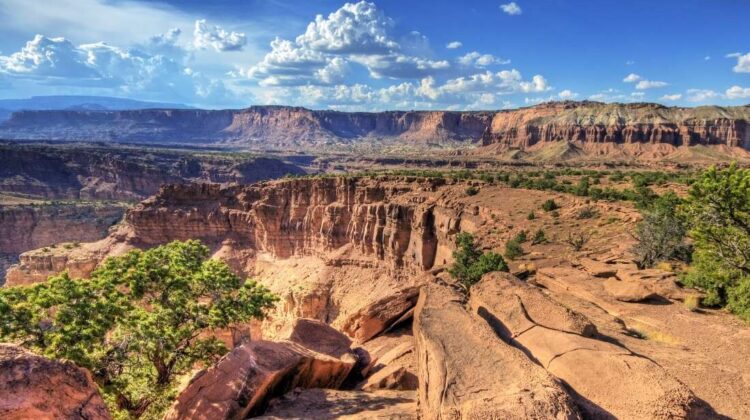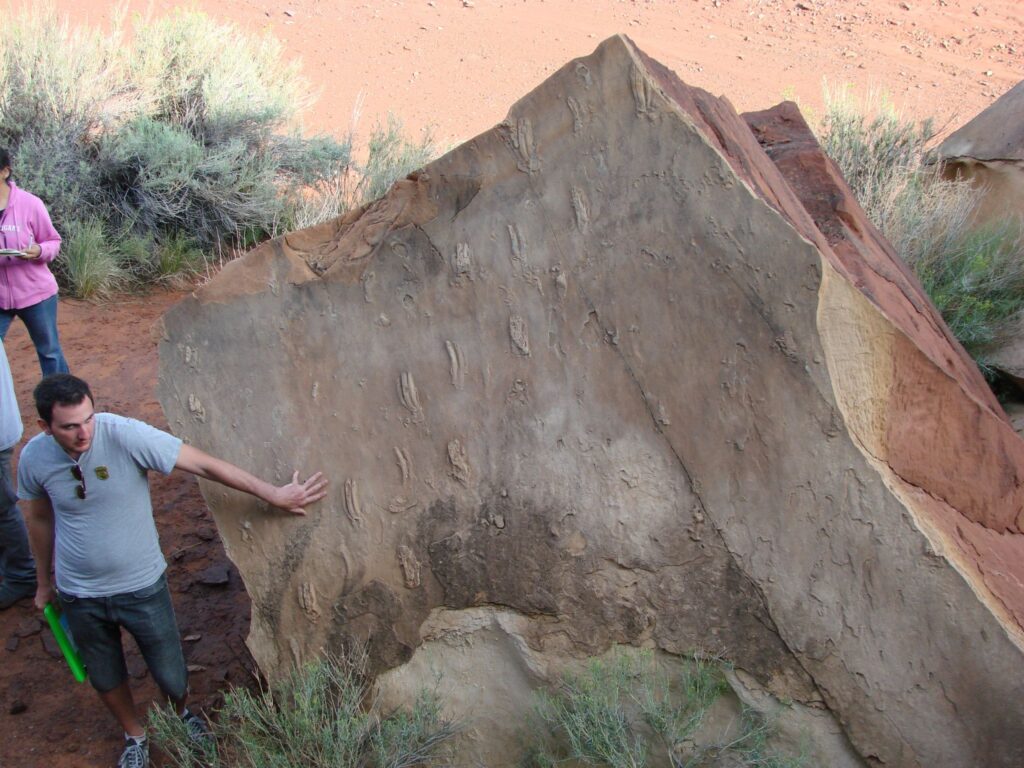
A 250-million-year-old fossil record wedge was taken from Utah’s Capitol Reef National Park five years ago, and the National Park Service (NPS) wants it back. The fossilized footprints were left by a Triassic-era reptile, and the National Park Service is offering a $1,000 prize to anyone who can assist the NPS in tracking down the palaeontological item and bringing the thief, or thieves, to justice.
The fossilized footprints are thought to have been excavated from a trackway in Capitol Reef National Park between 2017 and 2018. The theft was discovered after a paleontologist commented on photographs of the fossils uploaded to the Capitol Reef National Park’s Facebook page.
“A visitor commented on [the post] and indicated they noticed something was missing from that trackway,” said Shauna Cotrell, the park’s acting chief of interpretation, to KSL. “It came from a paleontologist visitor who was knowledgeable with the place.”
According to the Charlotte Observer, the well-preserved tracks, known as “toe scrapes,” are positive relief casts from track depressions in the underlying mudstone that were eventually filled with fine sands. While disappointing, their loss is just one of countless examples of theft that occur in national parks each year, despite officials’ warnings to “leave no trace” when trekking paths that contain such rich reserves of natural history.

While pocketing unclaimed keepsakes in the wild may appear to be a minor offense, taking relics from their actual last resting place has a disastrous effect on their scientific value. This is why national parks are protected by laws that ban people from removing objects from the land, but the threat of high penalties and even prison time isn’t always enough to deter individuals from doing so.
“Remorseful returns” from tourists who stole from national parks only to regret it have resulted in the creation of “conscience piles” and even museums when NPS sites find themselves with stolen artifacts that cannot be returned to their appropriate position.
This has been a particularly serious issue at Arizona’s Petrified Forest National Park (PFNP), where petrified wood is frequently stolen.
Concerning the preserved Triassic-era footprints, the NPS is appealing for anonymous or non-anonymous tips to help them track down the stolen fossil, with a $1,000 reward on the table if the guilty person(s) are discovered and convicted.
“Vandalism hurts,” the NPS said in response to the incident. “Capitol Reef National Park contains some of the oldest and most extensive reptile trails in the western United States.” Fossils, which are extremely rare, retain the record of life on Earth.”

Leave a Reply